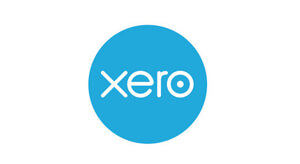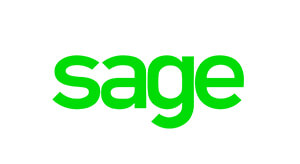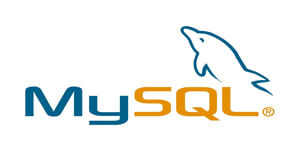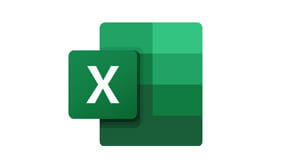Get your invoices right and build some momentum in your business
This might sound blatantly obvious, but mistakes on invoices can not only lead to the wrong amounts being paid, but can result in lengthy delays to being paid. Not to mention it looks pretty unprofessional if you can’t get your own invoicing right. At Momentum Bookkeeping, we are always looking at ways to work more closely with our clients in order to help streamline their business and allow them to work more efficiently towards the successful future growth that they are looking for in their business. And that is why we want to help our customer with top tips and recommendations to ensure that they get paid on time each and every time.
The things you need to get right on your invoices.
1. The customer’s name. And in particular, the name of the billable entity. This is especially important if you ever need to take action to recover a debt. We have seen, first hand, examples where the customer is a company that has gone out of business, restarted as a new limited company, but our client has continued to invoice using the previous entity’s name.
2. The date of the invoice
3. The invoice number
4. If your customer provides you with a PO number, USE IT. Make sure it is prominently displayed on your invoice to them.
5. The description, quantities and prices of the items you are selling/services you are provide.
6. Your addition. Many small businesses use Word to create their invoices (DON’T!!!)**. And they don’t use formulas in the invoice. So, if they amend one value, the totals don’t update. We have had one client who dealt with a FTSE 100 company. When they sent them an invoice, the values for the line items on their invoice did not add up to the net total and the VAT was not 20% of either the correct total, or the incorrect total. Imagine how difficult it must be to win a client of that size and status, and then you send them an invoice that is wrong on multiple levels.
Good, regular credit control
There are two types of business owner. The ones who, if they are owed money, have absolutely no problem about picking up the phone and asking for it; and the ones who will do anything to avoid doing that.
But the thing is, good credit control is NOT about chasing money.
Work out a simple and clear credit control policy, and communicate that to your customers at the beginning of the relationship. Make it clear what your payment terms are.
Put a due date on your invoices.
There is nothing wrong with calling your customers and making sure that they have received your invoice and that it has been passed for payment. This gives your customer the opportunity to raise any queries they might have before the invoice is due, rather than having them wait until it is due before telling you they have a problem.
If you issue multiple invoices to customers each month then issue a statement at the end of each month, and call a few days later to make sure it has been received and has been passed for payment. (Instead of calling after every invoice).
Depending on your relationship with your customers you might want to call a few days before the due date and confirm that it will be paid. If you have a customer who always pays on time you might feel this is unnecessary, but if you have a customer who is frequently late in paying then this is something to consider. They might consider it a bit pushy, or think you are a pain; but the reality is that you are only calling them because they have proven to be unreliable in the past.
If invoices are late, have a consistent approach to how you deal with this. You might not want to call in the first instance, but most bookkeeping software will allow you to issue reminder emails for outstanding invoices. These can be set up to be issued automatically, or you can do them on a case by case basis.
Remember, this is money you are owed; and you are entitled to ask for it when it is late.
But please, please, please. If you are going to chase money, check your bank before you do. If you chase for money and it was paid half an hour early, no one is going to mind. But if it turns out you were paid a week or more ago, you might get a nippy response.
DD Collection
There is a reason why all your utility suppliers, phone suppliers, insurance companies and everyone else wants you to pay by DD. As the DD originator, you are in control of the process. You know what date the money will be collected, you can vary the amount, and if it is cancelled you are notified of this immediately.
And Direct Debit is something even smaller businesses can take advantage of now. We collect about 90% of our monthly fees by Direct Debit. With the exception of the occasional bounced payment, we know exactly how much is going to hit our account, and when. This allows us to schedule our outgoing payments for a couple of days after the date we expect our funds to be in.
We have been using a company called Go Cardless since 2015, and the process has been simple and reliable. We have had literally zero issues running this. The advantage of Go Cardless, for us, is that there is no monthly fee, no software fee, no minimum charge. We simply pay a charge on each payment we collect. And from our perspective, that charge is nothing compared to the near certainty that we are going to get paid on time every month.
And while we do bill the same amount every month, Direct Debits, unlike Standing Orders, can be varied if need be. So even if the amount you bill your client differs from month to month, this is still a great solution.
Prompt Settlement Discounts
This isn’t appropriate for every business, but offering a discount to customers who pay quickly/early, can make a significant difference to how quickly you get paid. We had a client who worked with a local housing association. Their terms were 21 days from date of invoice, which had been agreed; but the person in the accounts department paid everyone 28 days from end of month and refused to change this. Our client had been providing services for over 3 years, and suggested they review their prices. They put their prices up 10% on the terms the housing association paid on. Then offered a 10% discount if the invoice was settled within 21 days. Effectively a 1% price cut. The accounts person was told by the Financial Director of the association to make sure they paid in time to get the discount.
If you are offering a prompt settlement discount, make sure it only gets taken where payment is received withing the agreed time. Ideally, apply the discount retrospectively. So, if someone gets a 5% discount for paying on time, and their bill for the month is £1000, ask them to pay the £1000 in full and then apply a credit of £50 to their account if settled on time.
Make it easy for people to pay
The more options people have on how they can pay you, the easier it is for them to pay and the quicker you are likely to be paid.
Direct Debit, we have already mentioned, is a great way of controlling when you get paid. But it isn’t always the right solution, especially if you don’t have high levels of repeat custom.
Being able to accept card payments, whether in person, over the phone or via your website can certainly be helpful, even for businesses that provide services.
If you use software to issue your invoices, most packages will allow you to include a button to Pay Now. Again, this is fantastic as it prompts the customer to pay right away, but also gives them a link to make the payment later if they wish to do so.
But whatever method you use, it is also important to put your bank details on your invoices. Most B2B customers will still pay via their online banking, so give them the information they need to do so and make it easy for people to pay you.
Be Clear on your terms
Make sure you state your payment terms to your customers before you begin trading with them. If you use contracts/letters of engagement, state clearly on these what your payment terms are.
Make sure each invoice has your payment terms clearly stated on it.
AND put the due date of each invoice on the invoice. In fact there is nothing wrong with having Payment Due : 01/01/2023 in large bold print at the top of your invoices.
Most importantly. Stick to your terms. Enforce them.
Momentum Bookkeeping
We are Momentum Bookkeeping and our goal is to make running your business easier. Whether it’s getting paid by your customers on time, completing your VAT returns or processing payroll; the demands on businesses can seem endless.
Let us handle your bookkeeping needs so that you can focus on running your business and gain some real momentum.

Initial Enquiries
While you may not love bookkeeping, we do. So whether you have a question about one of our bookkeeping services or you want to discuss a tailored service to suit what you need to get on with running your business, our door is always open.
Call or email us and lets start to build some momentum in your business.

Momentum Bookkeeping Ltd
Mentieth House, 29 Park Circus, Glasgow, G3 6AP
Call. 0141 375 1240
Email. info@mvbooks.co.uk






